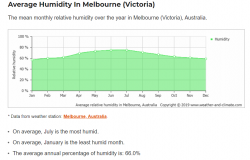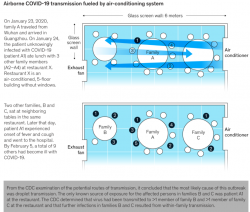Lynda2475
Suspended
- Joined
- May 1, 2009
- Posts
- 9,395
- Qantas
- Platinum
- Virgin
- Red
- Oneworld
- Emerald
SMH.com.au reports:
NSW records nine new cases, gym cluster grows
By Kate Aubusson
NSW has recorded nine new COVID-19 cases in the 24 hours to 8pm on Wednesday.
All the new cases were locally acquired – five linked to a cluster in Sydney’s CBD and four linked to previously reported cases.
Three newly diagnosed COVID-19 cases attended the Sydney Tattersalls gym, bringing the total number in the Sydney CBD to eight.
Anyone who attended the gym between 8am and 2pm on 19, 21 or 23 August is considered a close contact and must immediately get tested, self-isolate at home for 14 days, and get tested again if symptoms develop. Other members of the club who were at the venue during those dates should get tested if they develop symptoms.
There were 30,117 tests carried out over the 24-hour period.
Health alerts issued for two more Sydney gyms, three restaurants
By Kate Aubusson
NSW Health is contacting all known attendees of the Hunters Hill Bowling Club indoor dining room on 23 August from 12pm to 2pm to advise them to immediately get tested and self-isolate for 14 days even if the test is negative. People who attended other areas of the club are considered casual contacts and must monitor for symptoms and get tested if any develop.
Cases reported today also attended a number of other venues in Sydney. Anyone who visited the following locations during these times must also monitor for symptoms and get tested if any develop:
My understanding is that the Tattersalls gym patient zero was an instructor - so possible they also worked at FF in Bond St and Balgowlah.
@lovetravellingoz this new cluster is in a more affluent areas - Tattersalls memberships are only for the wealthy (mostly business owners) and northern beaches locations are also only for those who can afford the beach views
NSW records nine new cases, gym cluster grows
By Kate Aubusson
NSW has recorded nine new COVID-19 cases in the 24 hours to 8pm on Wednesday.
All the new cases were locally acquired – five linked to a cluster in Sydney’s CBD and four linked to previously reported cases.
Three newly diagnosed COVID-19 cases attended the Sydney Tattersalls gym, bringing the total number in the Sydney CBD to eight.
Anyone who attended the gym between 8am and 2pm on 19, 21 or 23 August is considered a close contact and must immediately get tested, self-isolate at home for 14 days, and get tested again if symptoms develop. Other members of the club who were at the venue during those dates should get tested if they develop symptoms.
There were 30,117 tests carried out over the 24-hour period.
Health alerts issued for two more Sydney gyms, three restaurants
By Kate Aubusson
NSW Health is contacting all known attendees of the Hunters Hill Bowling Club indoor dining room on 23 August from 12pm to 2pm to advise them to immediately get tested and self-isolate for 14 days even if the test is negative. People who attended other areas of the club are considered casual contacts and must monitor for symptoms and get tested if any develop.
Cases reported today also attended a number of other venues in Sydney. Anyone who visited the following locations during these times must also monitor for symptoms and get tested if any develop:
- Four Pines Manly Brew Bar on The Esplanade on August 23 from 3.30pm to 5pm
- The Magpies restaurant, Waitara on August 24 from 11.30am to 1.15pm
- Destro’s pharmac_ at 197-201 Victoria Road Drummoyne on August 22 from 11.20am to 11.40am
- Fitness First, Bond Street in Sydney CBD on August 20 and 21 in the afternoon
- Fitness First Balgowlah on August 23 from 9am to 12noon
My understanding is that the Tattersalls gym patient zero was an instructor - so possible they also worked at FF in Bond St and Balgowlah.
@lovetravellingoz this new cluster is in a more affluent areas - Tattersalls memberships are only for the wealthy (mostly business owners) and northern beaches locations are also only for those who can afford the beach views






















